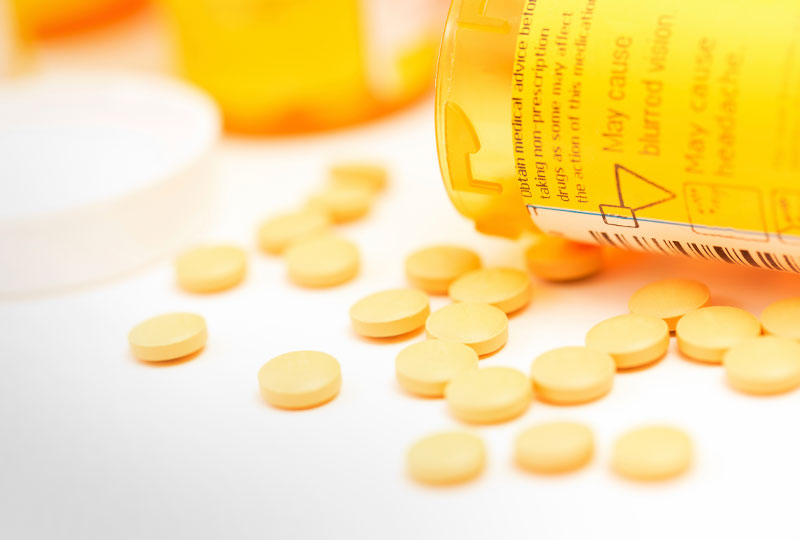See how everyday products can affect your medications.
According to the U.S. Food and Drug Administration, two out of every three patients who visit a doctor leave with at least one prescription for medication, and close to 40 percent of Americans receive four or more medication prescriptions.
With those rates, it’s important to realize the interactions that can occur. According to the FDA, drug interactions fall into three broad categories:
- Drug-drug interactions occur when two or more drugs react with each other.
- Drug-food/beverage interactions result from drugs reacting with foods or beverages.
- Drug-condition interactions may occur when an existing medical condition makes certain drugs potentially harmful.
Laura P. Hayes, Pharm D., pharmacist, Medical Center East Pharmacy at Vanderbilt University Medical Center, offered three common drug interactions and explained the dangers.
1. Warfarin (Coumadin – brand name) and vitamin K
High amounts of vitamin K can work against warfarin, which is a commonly used blood thinner. Vitamin K is seen most commonly in leafy green vegetables (spinach, turnips, collard, broccoli, asparagus, etc.). A common misunderstanding about this interaction is that patients should completely avoid green vegetables, but on the contrary, as long as the patient keeps green vegetable intake consistent week to week (i.e. five servings per week, or whatever the patient prefers), he or she can continue to consume green vegetables as part of a healthy diet.
2. Antibiotic interactions with dairy or other calcium containing products
There are several antibiotics on the market that should not be taken with dairy products, multivitamins or any other product that contains calcium because absorption is decreased. These medications should be separated from dairy, calcium, etc., by at least two hours. This list includes:
- Doxycycline
- Minocycline
- Levofloxacin (Levaquin)
- Ciprofloxacin (Cipro)
- Moxifloxacin (Avelox)
3. Metronidazole (Flagyl) and alcohol
While it is never advisable to drink alcohol while on an antibiotic, there is a true drug/food interaction between metronidazole and alcohol. For some patients, even just a few sips of alcohol while taking this drug can cause severe nausea and vomiting. Patients should also avoid using mouthwashes containing alcohol while on this medication. Patients should abstain from alcohol for 72 hours after the last dose of metronidazole.
There are many more interactions that may occur in addition to these. To help avoid problems when using over-the-counter medications, the FDA recommends the following:
- Always read drug labels carefully.
- Learn about the warnings for all the drugs you take.
- Keep medications in their original containers so that you can easily identify them.
- Ask your doctor what you need to avoid when you are prescribed a new medication. Ask about food, beverages, dietary supplements and other drugs.
- Check with your doctor or pharmacist before taking an over-the-counter drug if you are taking any prescription medications.
- Use one pharmacy for all of your drug needs.
- Keep all of your healthcare professionals informed about everything that you take.
- Keep a record of all prescription drugs, over-the-counter drugs and dietary supplements (including herbs) that you take. Try to keep this list with you at all times, but especially when you go on any medical appointment. Find more information and download this helpful chart to keep track of your medicines.
Hayes also reminds medication users that should you have any questions about possible food/drug interactions, your community pharmacist is one of the best resources available.
Did you know pharmaceutical substances accounted for 59 percent of reported poison cases last year in Tennessee? Click here to read more about what you can do to keep you and your family safe.

